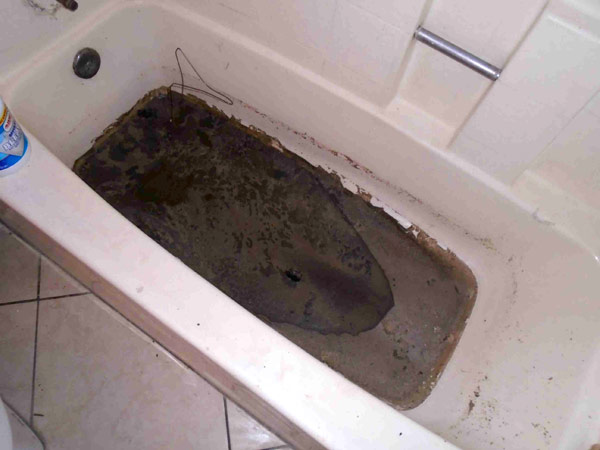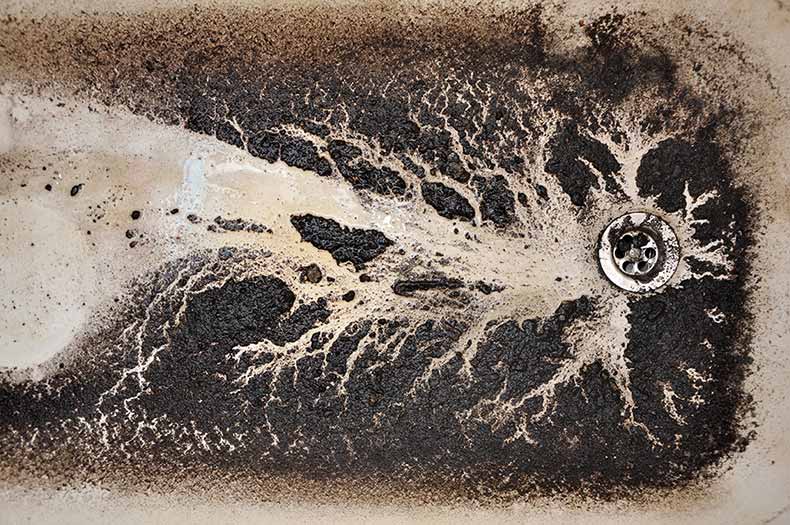This article following next relating to Why is Sewage Backing Up Into My Bathtub? is immensely interesting. Read on and make your own personal results.

Sewage back-up in the tub can be an upsetting and unsanitary trouble for any kind of home owner. Not only is it troublesome, yet it likewise positions significant health and wellness threats and shows underlying problems with the plumbing system. Recognizing why sewage is turning up with the bath tub is essential for taking proper action to deal with the problem effectively.
Intro to the Concern
Comprehending the Trouble
When sewage draws back up into the bathtub, it's a clear sign of a problem with the water drainage system. The wastewater that must be moving far from your home is instead finding its way back into your living space, which can cause significant damage and carcinogen.
Potential Reasons
Several factors can contribute to sewage backup in the tub. From blockages in the sewer line to concerns with the plumbing framework, recognizing the source is essential for locating a remedy.
Typical Factors for Sewer Back-up
Blockages in the Sewage System Line
One of one of the most usual sources of sewage back-up is an obstruction in the sewage system line. This can occur because of the accumulation of debris, grease, or international objects in the pipes, protecting against appropriate flow and triggering sewer to back up into your bathtub.
Tree Origin Invasion
Tree origins seeking wetness and nutrients can penetrate drain lines through tiny cracks or joints. Over time, these roots can expand and broaden, causing significant damage to the pipes and causing sewer back-up issues.
Aging Facilities
Older homes may have outdated plumbing systems that are a lot more at risk to corrosion, cracks, and wear and tear. As pipelines age, they become extra vulnerable to leakages and blockages, raising the probability of sewer backup incidents.
Heavy Rainfall or Flooding
During periods of heavy rainfall or flooding, the sewer system may come to be overloaded with excess water, creating backups and overflows. This can lead to sewer supporting into tubs and other fixtures inside the home.
Health Risks Associated with Sewer Backup
Contamination of Water System
Sewer backup can pollute the water in your home, presenting a significant health risk to you and your household. Direct exposure to polluted water can lead to stomach issues, skin infections, and other health problems.
Spread of Condition
Sewer consists of harmful microorganisms, infections, and parasites that can create a variety of illness, consisting of liver disease, cholera, and gastroenteritis. Entering contact with sewage or polluted surface areas puts you in jeopardy of infection.
Mold Growth
Wetness from sewer back-up can develop excellent problems for mold and mildew growth in your home. Mold spores can aggravate respiratory problems and create allergic reactions in delicate people, making punctual clean-up important.
Indications of Sewage Back-up
Foul Odors
Undesirable smells emanating from drains pipes or fixtures, especially in the washroom, might indicate sewage backup problems. These odors are commonly solid and consistent, signaling an issue that requires prompt focus.
Slow Draining Fixtures
Bathtubs, sinks, and bathrooms that drain pipes gradually or not in all could be experiencing sewer backup. If multiple fixtures are impacted concurrently, it's likely that the concern originates from an usual point, such as the primary sewage system line.
Gurgling Sounds
Odd gurgling or gurgling noises coming from drains when water is running somewhere else in your house are a measure of air entraped in the plumbing system. This air build-up can result from sewage back-up and need to be examined without delay.
Immediate Actions to Take
Switching Off Water System
In case of sewer backup, it's important to turn off the water supply to avoid more contamination and damage. Situate the primary water shutoff valve in your house and closed it off up until the problem can be dealt with.
Calling an Expert Plumber
Managing sewer backup is not a do it yourself job. Get in touch with a certified plumber with experience in handling sewage-related problems to analyze the circumstance and execute required fixings or clean-ups.
Avoiding Contact with Infected Water
Until the sewage backup is settled, avoid contact with contaminated water to avoid the spread of germs and microorganisms. Wear protective equipment if you should remain in the afflicted location and wash your hands completely afterward.
Preventive Measures
Regular Upkeep of Sewer Lines
Schedule regular assessments and maintenance of your drain lines to recognize and deal with prospective issues before they intensify right into significant problems. This can consist of cleaning particles, examining for tree root breach, and repairing any damaged pipelines.
Installing Backwater Shutoffs
Take into consideration installing bayou shutoffs in your plumbing system to stop sewage from receding into your home throughout periods of heavy rainfall or flooding. These shutoffs instantly close when water draws back up, securing your building from contamination.
Appropriate Disposal of Household Waste
Prevent flushing anything other than bathroom tissue and human waste down the toilet to prevent obstructions and clogs in the sewer line. Dispose of grease, oil, and other house chemicals effectively to lessen the threat of plumbing problems.
Tidying up After Sewer Back-up
Sanitation Procedures
Thoroughly sanitize and sterilize influenced locations after sewer backup to remove dangerous bacteria and avoid mold growth. Use appropriate cleaning products and safety equipment to ensure secure and reliable clean-up.
Restoration of Influenced Areas
Fix any kind of damage to flooring, walls, or fixtures caused by sewage back-up. Depending on the level of the damages, you might require to change carpets, drywall, or other materials to recover your home to its pre-loss problem.
Why Is Water Backing Up in My Bathtub When I Flush My Toilet?
What to do about a sewer line clog
First, don’t bother with plunging. No amount of plunging will dislodge the clog in a sewer line. The clog is too far away. Plungers are for clogs in the toilet itself, not the sewer line. Plus, the most likely causes of a sewer clog are:
- Tree roots
- Flushed toys or feminine products
- Grease buildup
Those items don’t move easily. And in the case of tree roots, the roots need to be cut out of the pipe and the pipe will need to be repaired.
You’ll need a closet auger. A closet auger is a type of plumber’s snake with a protective cover to keep from scratching the delicate porcelain toilet. If the clog is further down, you may need to remove the toilet or use one of your cleanouts to get to the clog.
We also recommend doing a video inspection of the drain to ensure that the cause of the clog has been completely removed. Otherwise, you could have the same problem again in a few days or weeks.
https://mspplumbingheatingair.com/blog/why-is-water-backing-up-in-my-bathtub-when-i-flush-my-toilet

Hopefully you liked our topic about Why sewage is coming up through your bathtub. Thank you so much for taking the time to browse our post. Sharing is good. You just don't know, you may very well be doing someone a favor. Thank you for being here. Kindly check up our blog back soon.
Automated Marketing

